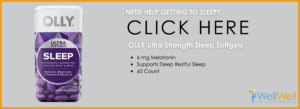The Skinny:
Good, plentiful sleep is the envy of virtually everyone for all sorts of reasons. Unfortunately, too many know sound sleep is not always easy to achieve even though sleep remedies, tactics and myths abound. The tryptophan in Thanksgiving turkey or a Burger King Whopper, for example, knocks some out like the Acme Anvil in a Roadrunner cartoon. Others rely on melatonin, while there are those who swear a “wee dram” at night is the key to a sleepy repose. What about other foods and drinks? Do any really promote a decent snooze? If so, why and how do they work? Read on.
The Slate:
Drink Some Water
Those insisting on having a glass of water by their bedside at night have good sleep instincts. Dehydration undermines decent sleep because fluid loss or electrolyte imbalance can cause the brain to temporarily contract or shrink. It also raises the level of cortisol, the primary stress hormone. Dehydration causes headaches—even migraines—weakness, dizziness, muscle spasms and uncomfortably dry respiratory passages. If gastric reflux or nighttime bathroom trips are a problem, limit liquid consumption accordingly.
Herbal Tea’d Up
Warm drinks are soothing and decaf teas provide a cozy bedtime ritual without the caffeine buzz. Cleveland Clinic recommends herbal teas containing mild sedatives like chamomile (the flavonoid, apigenin), lavender (linalool, linalyl acetate and camphor) and valerian root (gamma-aminobutyric acid – GABA), passionflower (GABA), magnolia (magnolol), lemon balm (terpenes) and low-caffeine green tea (l-theanine). Remember to limit added sugar.
Warm Milk
A little milk, warm or otherwise, along with yogurt or cottage cheese before bedtime promotes restful sleep. But sugar-loaded ice cream isn’t as helpful because it affects insulin levels. Dairy products help because of the calcium, magnesium and potassium these foods hold. Together they promote muscle and nerve relaxation, which is what bodies need when people are trying to drift off to sleep. Magnesium also helps reduce stress and inflammation.
Tryptophan-Rich Foods
Tryptophan is a precursor to serotonin, which affects both mood and sleep. Serotonin also helps produce melatonin, which regulates natural sleep cycles. Human bodies can’t produce tryptophan, but foods like meat, tuna, dairy products, nuts, chocolate, tomatoes, bananas, apples, strawberries, grapes and prunes can. Eating these foods boost melatonin and serotonin, which can reduce the time it takes to fall asleep. Oh yes, despite urban myths, tryptophan won’t give an immediate knock-out; its sleep-regulating effects are more long-term.
Does Melatonin Work?
Melatonin can help induce sleep because it can regulate circadian rhythms. Human pineal glands usually produce enough, but melatonin-containing foods like corn, asparagus, olives, broccoli, cucumber, barley, rice, walnuts, peanuts, pistachios, tart cherries, mushrooms and flaxseed can help overcome any personal shortcomings. Melatonin pills have their shortcomings, however. They work better for overcoming jet lag than as a regular nightly routine. Overdose disrupts normal sleep cycles, causing dangerous daytime drowsiness.
Carbohydrates Can Help
High-carbohydrate diets can help bring sleep more quickly than diets consisting mostly of protein or fat. Moderate carbohydrate consumption aids tryptophan metabolism, enhancing its effectiveness. One concern, however, is that these meals cause blood-sugar rise-and-crash scenarios that result in fatigue and restlessness and sleepiness an hour after ingestion, restless sleep my follow.
Blending Carbs, Protein and Tryptophan
Looking for a three-punch knockout? Researchers have found that increasing blood sugar levels promotes sleepiness and that this can be done by consuming lots of carbs, protein and tryptophan together at the same time.
Booze Snooze
Genetic factors can make human alcohol metabolism pretty variable. Some find a small bedtime drink helps them relax and feel sleepy. Yet be forewarned. This is not recommended as a routine practice because ultimately alcohol interferes with deep sleep. A hypothetical worst-case scenario for repeated wakening and low-quality sleep involves drinking lots of alcohol on an empty stomach close to bedtime when sleep-deprived and taking medications that amplify alcohol’s effects. It is also unlikely few will feel well-rested if they wake up with a hangover.
The Bottom Line
Hydration is important, but water, milk or herbal teas may be more effective than bedtime alcohol. It is also important not to go to bed hungry or stuffed. Healthy carbs, protein and tryptophan-containing foods in a main meal four hours before bedtime is one of the best ways to promote sleep. Light bedtime snacks light should be limited to dairy, fruit, cereal or a few crackers and cheese. Too much sugar can cause sleep-disrupting insulin fluctuations.
Eyes Up:
What’s your bedtime snack? Let us know at info@wellwellusa.com.
WellWell editors independently identify services and products of interest. If readers purchase anything through the associated links, WellWell may earn a commission, which goes to support our work. Learn More.











